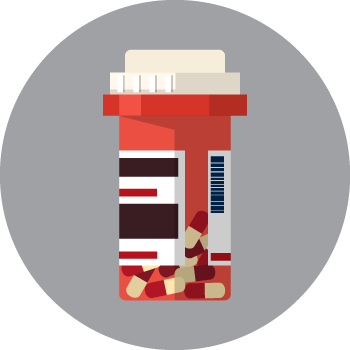 Sometimes, with OsteoArthritis of the Knee or Peripheral Neuropathy, the use of pain medication is unavoidable. We understand that some patients experience tremendous amounts of pain each and every day, and sometimes treatment programs will need to be supplemented with prescription medication. It’s very important to us that each of our patients knows how to use that medication safely.
Here are a few tips that we give our patients if they need to be take prescribed pain medication:
Sometimes, with OsteoArthritis of the Knee or Peripheral Neuropathy, the use of pain medication is unavoidable. We understand that some patients experience tremendous amounts of pain each and every day, and sometimes treatment programs will need to be supplemented with prescription medication. It’s very important to us that each of our patients knows how to use that medication safely.
Here are a few tips that we give our patients if they need to be take prescribed pain medication:
- Keep track of your medication by writing down when you take it. It can be easy to forget when you took your last pill, especially with the fogginess that can be a side effect with pain medication.
- Wean yourself off any pain medications as soon as possible after consulting with your doctor. If you can handle moving to a lower dose or even to an over-the-counter pain reliever, do so. The less time you’re on the prescription pain medication the better.
- Do not mix your pain killers with alcohol. Pain medication is already hard on your liver and mixing it with alcohol can have profound effects on your body. Make sure to drink plenty of water when taking pain medication.
- If the prescriptions are causing nausea, try taking them with food or a glass of milk. This can often times be the remedy for an upset stomach caused by prescription medication.
- If you feel that you are developing a dependency on your pain medication, talk to your doctor right away. Long-term use — whether it’s necessary for pain, or you’ve developed a dependency — can be extremely harmful. It’s important to bring this issue up with your doctor as soon as possible so they can reassess your prescription.
- We also recommend that you stay in contact with the doctor prescribing your pain medication and let them know of any changes in your health or other medications. This can help you avoid any negative interactions or side effects.
- Be extremely careful when on prescription pain medications. The fogginess, drowsiness and nausea can have a great effect on your life. Don’t drive when on the medication, and if possible, have someone to help monitor you if it’s your first time taking the medication in the event that you need any help or have an adverse reaction.






Leave a Reply